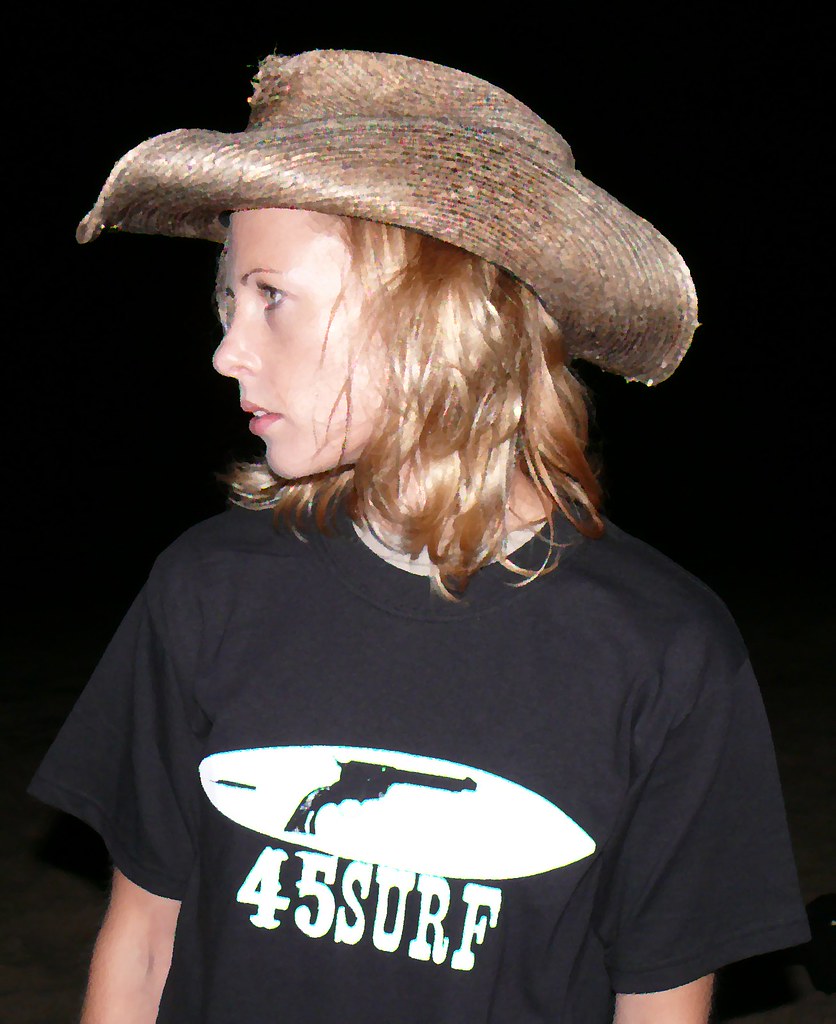|
|



45SURF Hero's Odyssey Gear for your Epic Adventure.
 The Epic Nikon D850!  |





"Thus I beheld assemble the fair school
Of that lord of the song pre-eminent,
Who o'er the others like an eagle soars."
--Dante on Homer in The Divine Comedy Longfellow translation
"As, in the serious style, Homer is pre-eminent among poets. . ."
--Aristotle's Poetics
"Homer, the sovereign poet." --Dante Alighieri, Divina Commedia.
"Follow your own star." --Dante
". . they all fall off, one by one, until we are left with Virgil and
Homer,
and perhaps Homer alone." -Thomas Jefferson
"Science arose from poetry... when times change the two can meet again
on a higher level as friends." -Goethe
dx4/dt=ic -- Dr. E signs all his fine art
with Moving Dimension
Theory's equation, and it
graces all
the 45surf clothes.
The theory's odyssey, like all science, begins in the "Rage of
Achilles."

Dr. E's ten-foot-wide, fine-art panorama: The Iliad, Odyssey, and
Aeneid
| John Ford. John Wayne.
Stagecoach. The Searchers. Easy Rider
and 2001 A Space
Odyssey. All exalted, and were exalted by, the world's
most
epic, natural stage--Monument Valley. It is easy to see why
the
greatest storytellers gravitated towards this scenery, for the
towering monuments stand forth like archetypal mythology
herself--reminding us of the hardness and immutability of the
heroic heart as it stands tall for principle at high noon, as
well
as her soft, ever-changing beauty, as the lofty clouds paint
the red land in shadow and light. The great director Sergio Leone, who chiseled the young Clint Eastwood into an international star in A Fistful of Dollars and The Good, The Bad, and The Ugly stated, "The greatest scriptwriter of Westerns was Homer. The Archetypes of yesterday's cowboys were Achilles, Ajax, Agamemnon, and Hector." The first half of Virgil's Aeneid paralleled the Odyssey, while the second half followed the plot of the Iliad. Socrates would cite the Heroic honor of Achilles while choosing death over dishonor in Fathering Western Philosophy (and thus science and technology!), while Virgil would mentor Dante on down through hell in the Inferno, where Dante would also encounter Homer, calling him the "premiere poet." In his later years the great poet who authored the Declaration of Independence--Thomas Jefferson would write, "As we advance in life, they all fall off, one by one, until we are left with Virgil and Homer, and perhaps Homer alone." And so it is that as the rains fall year after year, and the rivers run, the body of the land is etched away so as to reveal the immortal soul, and towering there we can see the unyielding poetry--the Iliad, Odyssey, and Aeneid. Trust me on this--take a copy of the Iliad when you visit Monument Valley. |
Ecce Deus fortior me, qui veniens dominabitur mihi.
("Behold, a
deity/goddess
stronger than I; who coming, shall rule over me.")
--Dante in La
Vita
Nuova on Beatrice--his muse and inspiration for The Divine
Comedy
ONE OCEAN--THE HEROIC MONOMYTH--UNITES US ALL.
45SURF--BY JOHNNY RANGER MCCOY--CELEBRATING THE GODDESS ARCHETYPE
dx4/dt=ic
"Beauty will save the world." -Fyodor Dostoyevsky
45SURF(R) HERO'S ODYSSEY MYTHOLOGY PHOTOGRAPHY
EXALTING THE CLASSICAL GODDESS & BEAUTY'S EPIC ARCHETYPESTM
Nature's natural light & natural beauty.
"Myths and creeds are heroic struggles to comprehend the truth in the world." --Ansel Adams
VINTAGE 45SURF
45SURF: HERO'S ODYSSEY MYTHOLOGY: YOUR EPIC POEM BEGINS TONIGHTTM

ULYSSES' SUNSET
Dr. Elliot McGucken Fine Art Photography
|
14-24mm F/2.8 lens 7 exposures @ 1 EV El Matador Beach, Malibu Fuji-crystal archival paper front-mounted to acrylic. All sizes/formats in catalog. After spending the Malibu summer setting behind the land, the sun returns to set over the ocean in the fall, once again calling us to adventure—“to sail beyond the sunset.” At first I thought the thick clouds would block the sun on this fine October evening, but then, at the last moment, Poseidon relented and Apollo burst through, lighting up the sea, sky, and land with a most epic sunset. Rather than signifying the end of the day, the colorful sunset, like the resplendent autumn, calls us to new adventures, as the night falls and we are greeted by “what dreams may come.” Alfred Lord Tennyson caught the rugged spirit of “sailing beyond the sunset” in his poem Ulysses—“To strive, to seek, to find, and not to yield."
To sail beyond the sunset, and the baths
On First Looking into Chapman’s Homer
|
Dr. E's Hero's Odyssey Mythology Fine Art Photography





45SURF Hero's Odyssey Gear for your Epic Adventure.






Ten-foot wide triptych of The Iliad, Odyssey, and Aeneid
and other works from Dr. E's 45SURF Hero's Odyssey Mythology Photography.

THOR'S HAMMER: Dr. Elliot McGucken Fine Art Photography
|
24-300mm Nikkor lens 7 exposures @ 1 EV. Fuji crystal metallic paper front-mounted to acrylic. |
THE GODDESS APHRODITE WITH HER LONG HAIR BLOWING BACK
|
24-300mm Nikkor lens 7 exposures @ 1 EV. Fuji crystal metallic paper front-mounted to acrylic. |
So now all who escaped death in battle or by shipwreck had got
safely home except Ulysses, and he, though he was longing to return to his wife and
country, was detained by the goddess Calypso, who had got him into a large cave and
wanted to marry him. But as years went by, there came a time when the gods settled
that he should go back to Ithaca; even then, however, when he was among his own
people, his troubles were not yet over; nevertheless all the gods had now begun to
pity him except Neptune, who still persecuted him without ceasing and would not let
him get home. --translated by Samuel Butler
|



|
Dr. Elliot McGucken Fine Art Photography 14-24mm F/2.8 lens 7 exposures @ 1 EV El Matador Beach, Malibu Fuji-crystal archival paper front-mounted to acrylic. All sizes/formats in catalog. The great poet Homer repeats the epithet “the child of morning, rosy-fingered Dawn" throughout the Iliad and Odyssey, and the words always comes to mind while witnessing Malibu’s spectacular sunrises. "When the child of morning, rosy-fingered Dawn, appeared,” Homer sang in the Odyssey, “I bade my men on board and loose the hawsers. Then they took their places and smote the grey sea with their oars; so we sailed on with sorrow in our hearts, but glad to have escaped death though we had lost our comrades.” Odysseus shares the mixed feelings of departing the Island of Cyclopes, after the Cyclops ate several of Odysseus’s crewmembers before Odysseus was able to dispatch the giant, one-eyed monster. Though regrets and sorrow are most natural, we must never let them trump the rising sun—the recurring glory of “the child of morning, rosy-fingered Dawn”—as we too “smite the grey sea with our oars” and carry on in honor of all those less fortunate who cannot. Simple thanks is good, but action in the service of others is more sincere, and so we seize the day. “Carpe diem, quam minimum credula postero!” advised the ancient poet Horace—“Seize the day, put no trust in tomorrow.” |



45SURF Hero's Odyssey Gear for your Epic Adventure.






|
The face that launch'd a thousand ships
Was this the face that launch'd a thousand ships, |
And which of the gods was it that set them on to quarrel? It was the son
of Jove and Leto; for he was angry with the king and sent a pestilence
upon the host to plague the people, because the son of Atreus had
dishonoured Chryses his priest. Now Chryses had come to the ships of the
Achaeans to free his daughter, and had brought with him a great ransom:
moreover he bore in his hand the sceptre of Apollo wreathed with a
suppliant's wreath and he besought the Achaeans, but most of all the two
sons of Atreus, who were their chiefs.
"Sons of Atreus," he cried, "and all other Achaeans, may the gods who
dwell in Olympus grant you to sack the city of Priam, and to reach your
homes in safety; but free my daughter, and accept a ransom for her, in
reverence to Apollo, son of Jove."
--translated by Samuel Butler






 "Sandro Botticelli - La nascita di Venere - Google Art Project - edited" by Sandro Botticelli - Adjusted levels from File:Sandro Botticelli - La nascita di Venere - Google Art Project.jpg, originally from Google Art Project. Compression Photoshop level 9.. Licensed under Public domain via Wikimedia Commons. |
45surf exalts the epic goddess archetype: The Birth of Venus (Botticelli)
|
"Recommend virtue to your children; it alone, not money, can make them happy." --Beethoven.
Dr. E: Come ride with us--the mentors of all mentors--the fellowship of
immortal souls who have ever "sailed beyond the sunset" and headed West
alongside Ulysses. Dante called Homer "the
sovereign poet" while Virgil, who structured the first half of his
Aeneid like Homer's Odyssey and the second half like the Iliad from
where he borrowed his lead character thev "pius" Aeneas, mentored Dante
on down through Hell. Thomas Jefferson wrote, "as we advance in life
these things fall off one by one, and I suspect that we are left at last
with only Homer and Virgil, and perhaps Homer alone." Socrates, who
mentored Plato who in turn mentored Aristotle whom Dante labeled "the
master of those who know," cited the courage of Achilles in Homer's
Iliad, when he stood for Truth and Reason over politics before
the
Athenian Jury. Like Achilles, Socrates knew that he would die for
refusing to back down from the philosophical battle and rescind his
simple
teaching that "Virtue/Arete does not come from money, but money and
every lasting good of man derives from Virtue." Aristotle considered
Homer the greatest of epic poets, as did Shelley and George Chapman, who
designated Homer the "Prince of Poets" while translating the
Iliad
into the form that Abraham Lincoln would eventually read, leading
Lincoln
to state, "Everything that one needs to know about his fellow man may be
found herein." Alexander the Great carried Homer's Iliad upon all
his
expeditions, and during his presidency, Lincoln traveled with a
well-worn
copy of Shakespeare's works, while Jefferson wrote that Shakespeare
ought be read in the evening and, singled
out by one who wishes to
learn the full powers of the English language." And so it is that Dr.
E's class begins with Homer and ends with Hamlet, and I invite ye
to
come ride with us all. --from Dr. E's The Hero's Odyssey Mythology
Code
of
Honor. |

|
Dr. E's NSF-funded Ph.D. dissertation titled Multiple Unit
Artificial Retina Chipset to Aid The Visually Impaired and Enhanced
CMOS Phototransistors received a Merill
Lynch Innovations Award, and the technology is now helping the blind
see.
Dr. E receieved the Tanner Award for Excellence
in Undergraduate Teaching while at UNC Chapel Hill as well as an
honorary
membership in the American Soceity of Physics Teachers.
Recently, upon donating some of his fine art photography to a hospital following a successful gallery show in LA, Dr. E realized that someday soon, a patient would see one of his fine art images hanging in the hospital's hallways with the retinal prosthesis from his physics Ph.D. dissertation.  The appendix of the dissertation concerned itself with theoretical physics known as Moving Dimensions Theory--a theory born from Dr. E's days working with the late John Archibald Wheeler at Princeton University--and Dr. E signs all of his fine art with its simple, far-reaching equation--dx4/dt=ic.  In words, dx4/dt=ic stipulates that the fourth dimension is expanding relative to the three spatial dimensions at the rate of c (the velocity of light), and that photons of light are are but momenergy that surfs this fourth expanding dimension.  MDT weaves change into the foundational fabric of spacetime, and too, it provides the foundational mechanism for all motion--the fourth expanding dimension is what carries every photon along its odyssey. In his paper, "A Hero's Odyssey with Galileo, Newton, Faraday, Maxwell, Planck, Einstein, Schrodinger, Bohr, and the Greats towards Moving Dimensions Theory. E pur si muove," Dr. E writes,
When the Great Wheeler sadly passed away a few years ago, Colby Cosh saluted him in the National Post with, "At 96, he had been the last notable figure from the heroic age of physics lingering among us. . . the student of Bohr, teacher of Feynman, and close colleague of Einstein. . . Wheeler was as much philosopher-poet as scientist, seizing on Einsteinian relativity early . . . He was ready to believe in the new world before most physicists. . ." J.A. Wheeler, Princeton's Joseph Henry Professor of Physics, wrote these kind words which I shall be forever thankful for, and which, as a recommendation for grad school, lead to my artificial retina Ph.D. dissertation project, which is now helping the blind see: "More intellectual curiosity, versatility and yen for physics than Elliot McGucken's I have never seen in any senior or graduate student. . . Originality, powerful motivation, and a can-do spirit make me think that McGucken is a top bet for graduate school in physics. . . I say this on the basis of close contacts with him over the past year and a half. . . I gave him as an independent task to figure out the time factor in the standard Schwarzchild expression around a spherically-symmetric center of attraction. I gave him the proofs of my new general-audience, calculus-free book on general relativity, A Odyssey Into Gravity and Space Time. There the space part of the Schwarzchild geometric is worked out by purely geometric methods. "Can you, by poor-man's reasoning, derive what I never have, the time part?" He could and did, and wrote it all up in a beautifully clear account. . . .his second junior paper . . . entitled Within a Context, was done with another advisor, and dealt with an entirely different part of physics, the Einstein-Rosen-Podolsky experiment and delayed choice experiments in general. . . this paper was so outstanding. . . I am absolutely delighted that this semester McGucken is doing a project with the cyclotron group on time reversal asymmetry. Electronics, machine-shop work and making equipment function are things in which he now revels. But he revels in Shakespeare, too. Acting the part of Prospero in The Tempest. . ." The Wall Street Journal reported: "After winning (the Merrill Lynch Innovations Grant Contest for his physics Ph.D.), he got to tour The New York Stock Exchange. Dr. McGucken caught the entrepreneurial bug. Eventually, he launched an internet company devoted to his longtime passions: writing and classical literature. . .The Web site is filled with Dr. McGucken's poetry and commentary and discussion groups on classic literature. "It's all written in a classical context with a Generation X attitude," he says. He sells ads to online vendors in fields ranging from life insurance to pantyhose and has a deal with Amazon.com that gives him a cut of sales generated by his site. . . HE HAS RESISTED the siren call of big business, although he has talked to venture capitalists and he almost sold out to a larger company before that company was taken over. Dr. McGucken wouldn't mind being part of a larger site, but he doesn't want to be a larger company. "If I was to try to squeeze huge profits out of it to please venture capitalists, it would ruin the spirit of it," he says. . . " --The Wall Street Journal The NCSU Engineering department reported, "NC State University and Dr. Elliot McGucken, assistant professor of physics at Elon College and post-doctoral research assistant in the College of Engineering at NC State, have received grants as part of the Merrill Lynch Forum¤s Innovation Grants Competition. Open to doctoral degree recipients, the international awards recognize innovative research that has commercial applications. McGucken, who entered his dissertation on developing an artificial retina system that combines microchips, miniature cameras and tiny electrodes, was selected as one of two second place winners from the competition field of 213 entries from 16 countries. The second place entries receive a $20,000 grant, and the university affiliated with the research receives a $5,000 incentive grant from Merrill Lynch. McGucken's research, conducted with Dr. Wentai Liu, professor of electrical and computer engineering at NC State University, involves the development of a microchip that can be implanted into the eye to restore limited visibility to patients with retinal degeneration. Estimations are that, once the device is tested and made available to the public, it could restore limited sight to more than 10,000,000 people. McGucken received his Ph.D. in physics from the University of North Carolina at Chapel Hill.
The foundational equation of award-winning Ph.D. physicists Dr. E's
Moving Dimensions Theory
dx4/dt=ic appears on all the 45surf clothing.
|

|
The above painting is Rembrandt's "Aristotle contemplating the bust of
Homer," and the book tells the story of Dr. E's dx4/dt=ic,
tracing
the
modern physics equation on back through the heroic odysseys of Einstein,
to Maxwell and Farady, to Newton, to Galileo, to Copernicus, to
Aristotle's "Natural Philosophy," to Socrates' trial whence he refused
to
rescind his teaching,
"Virtue does not come from money, but money and every lasting good of
man
derives from virtue," citing the courage of Achilles in Homer's
Iliad. And so it is that the history of modern science
and technology, from Dr E's Moving Dimensions Theory and
NSF-funded, award-winning physics Ph.D. dissertation which is now
helping
the blind see
are
traced along an odyssey leadig back to the very first word of Homer's
Iliad--RAGE--the divine RAGE of Achilles which drove him to Speak Truth
to
Power, thusly fostering the scientific spirit which, the great
physicist Feynman reminds us,
is all about learning to "quetsion the experts." "Amicus Plato"
amicus
Aristoteles"
magis
a veritas," wrote Sir Isaac Newton which means, "Plato is my friend,
Aristotle is my friend, but my greatest friend is Truth." This was
likely
inspired by Aritsotle's statement in the Nicomachean Ethis, "Where both
are friends, it is right to prefer truth."
Nor is Dr. E alone in perceiving the deep connection between science and Epic Poetry, for Goethe wrote, "Science arose from poetry--when times change the two can meet again on a higher level as friends." Just as Aristotle noted that character was defined by virtuous action, so too did Eisntein note that science was advanced primarily by character, writing, "Most people say that it is the intellect which makes a great scientist. They are wrong: it is character." In saltuting the great Copernicus, Einstein saluted not only his scientific work, but the "greatness of his personality"--his character. Once it was recognised that the earth was not the center of the world, but only one of the smaller planets, the illusion of the central significance of man himself became untenable. Hence, Nicolaus Copernicus, through his work and the greatness of his personality, taught man to be honest. (Albert Einstein, Message on the 410th Anniversary of the Death of Copernicus, 1953) MDT provides both the "elementary foundations" of relativity that Einstein yet sought, and the foundational physical reality underlying and causing quantum nonlocality and entanglement, which  Schrodinger labeled th "characteristic trait" of QM. Einstein's Principle of Relativity, as well as his two postulates, derive from MDT's simple physical model (Fig. 1) and single postulate which is more concise and has the added benefits of providing for free will, liberating us from the block universe, weaving change into the fundamental fabric of space-time for the first time in the history of relativity, and providing an elementary, foundational physical model for time and all its arrows and asymmetries, entropy, and QM's nonlocality and entanglement, as well as reality's probabilistic nature. The fourth dimension is inherently nonlocal via its invariant expansion, which is the source of nonlocality as well as relativity. All of this is more fully developed in Dr. E's 2008 paper on M, which examines Einstein's 1912 Manuscript on Relativity and derives relativity from MDT's dx4/dt=ic: Time as an Emergent Phenomenom: fqxi.org/community/forum/topic/238. Simple, logical proofs of MDT:MDT PROOF#1: Relativity tells us that a timeless, ageless photon remains in one place in the fourth dimension. Quantum mechanics tells us that a photon propagates as a spherically-symmetric expanding wavefront at the velocity of c. Ergo, the fourth dimension must be expanding relative to the three spatial dimensions at the rate of c, in a spherically-symmetric manner. The expansion of the fourth dimension is the source of nonlocality, entanglement, time and all its arrows and asymmetries, c, relativity, entropy, free will, and all motion, change, and measurement, for no measurement can be made without change. For the first time in the history of relativity, change has been wedded to the fundamental fabric of spacetime in MDT. MDT PROOF#2: Einstein (1912 Man. on Rel.) and Minkowski wrote x4=ict. Ergo dx4/dt=ic. MDT PROOF#3: The only way to stay stationary in the three spatial dimensions is to move at c through the fourth dimension. The only way to stay stationary in the fourth dimension is to move at c through the three spatial dimensions. Ergo the fourth dimension is moving at c relative to the three spatial dimensions. MDT twitter proof (limited to 140 characters): SR: photon is stationary in 4th dimension. QM: photon is probability wave expanding @ c. Ergo: 4th dimension expands @ c & MDT:  dx4/dt=ic –from http://twitter.com/45surf When the Great Wheeler sadly passed away a few years ago, Colby Cosh saluted him in the National Post with, "At 96, he had been the last notable figure from the heroic age of physics lingering among us. . . the student of Bohr, teacher of Feynman, and close colleague of Einstein. . . Wheeler was as much philosopher-poet as scientist, seizing on Einsteinian relativity early . . . He was ready to believe in the new world before most physicists. . ." J.A. Wheeler, Princeton's Joseph Henry Professor of Physics, wrote these kind words which I shall be forever thankful for, and which, as a recommendation for grad school, lead to my artificial retina Ph.D. dissertation project, which is now helping the blind see: "More intellectual curiosity, versatility and yen for physics than Elliot McGucken's I have never seen in any senior or graduate student. . . Originality, powerful motivation, and a can-do spirit make me think that McGucken is a top bet for graduate school in physics. . . I say this on the basis of close contacts with him over the past year and a half. . . I gave him as an independent task to figure out the time factor in the standard Schwarzchild expression around a spherically-symmetric center of attraction. I gave him the proofs of my new general-audience, calculus-free book on general relativity, A Odyssey Into Gravity and Space Time. There the space part of the Schwarzchild geometric is worked out by purely geometric methods. "Can you, by poor-man's reasoning, derive what I never have, the time part?" He could and did, and wrote it all up in a beautifully clear account. . . .his second junior paper . . . entitled Within a Context, was done with another advisor, and dealt with an entirely different part of physics, the Einstein-Rosen-Podolsky experiment and delayed choice experiments in general. . . this paper was so outstanding. . . I am absolutely delighted that this semester McGucken is doing a project with the cyclotron group on time reversal asymmetry. Electronics, machine-shop work and making equipment function are things in which he now revels. But he revels in Shakespeare, too. Acting the part of Prospero in The Tempest. . ." The Wall Street Journal reported: "After winning (the Merrill Lynch Innovations Grant Contest for his physics Ph.D.), he got to tour The New York Stock Exchange. Dr. McGucken caught the entrepreneurial bug. Eventually, he launched an internet company devoted to his longtime passions: writing and classical literature. . .The Web site is filled with Dr. McGucken's poetry and commentary and discussion groups on classic literature. "It's all written in a classical context with a Generation X attitude," he says. He sells ads to online vendors in fields ranging from life insurance to pantyhose and has a deal with Amazon.com that gives him a cut of sales generated by his site. . . HE HAS RESISTED the siren call of big business, although he has talked to venture capitalists and he almost sold out to a larger company before that company was taken over. Dr. McGucken wouldn't mind being part of a larger site, but he doesn't want to be a larger company. "If I was to try to squeeze huge profits out of it to please venture capitalists, it would ruin the spirit of it," he says. . . " --The Wall Street Journal The NCSU Engineering department reported, "NC State University and Dr. Elliot McGucken, assistant professor of physics at Elon College and post-doctoral research assistant in the College of Engineering at NC State, have received grants as part of the Merrill Lynch Forum's Innovation Grants Competition. Open to doctoral degree recipients, the international awards recognize innovative research that has commercial applications. McGucken, who entered his dissertation on developing an artificial retina system that combines microchips, miniature cameras and tiny electrodes, was selected as one of two second place winners from the competition field of 213 entries from 16 countries. The second place entries receive a $20,000 grant, and the university affiliated with the research receives a $5,000 incentive grant from Merrill Lynch. McGucken's research, conducted with Dr. Wentai Liu, professor of electrical and computer engineering at NC State University, involves the development of a microchip that can be implanted into the eye to restore limited visibility to patients with retinal degeneration. Estimations are that, once the device is tested and made available to the public, it could restore limited sight to more than 10,000,000 people. McGucken received his Ph.D. in physics from the University of North Carolina at Chapel Hill. Moving Dimensions Theory: Time as an Emergent Phenomenon: Traveling Back to the Heroic Age of Physics by Elliot McGucken In his 1912 Manuscript on Relativity, Einstein never stated that time is the fourth dimension, but rather he wrote x4 = ict. The fourth dimension is not time, but ict. Despite this, prominent physicists have oft equated time and the fourth dimension, leading to un-resolvable paradoxes and confusion regarding time’s physical nature, as physicists mistakenly projected properties of the three spatial dimensions onto a time dimension, resulting in curious concepts including frozen time and block universes in which the past and future are omni-present, thusly denying free will, while implying the possibility of time travel into the past, which visitors from the future have yet to verify. Beginning with the postulate that time is an emergent phenomenon resulting from a fourth dimension expanding relative to the three spatial dimensions at the rate of c, diverse phenomena from relativity, quantum mechanics, and statistical mechanics are accounted for. Time dilation, the equivalence of mass and energy, nonlocality, wave-particle duality, and entropy are shown to arise from a common, deeper physical reality expressed with dx4/dt=ic. This postulate and equation, from which Einstein’s relativity is derived, presents a fundamental model accounting for the emergence of time, the constant velocity of light, the fact that the maximum velocity is c, and the fact that c is independent of the velocity of the source, as photons are but matter surfing a fourth expanding dimension. In general relativity, Einstein showed that the dimensions themselves could bend, curve, and move. The present theory extends this principle, postulating that the fourth dimension is moving independently of the three spatial dimensions, distributing locality and fathering time. This physical model underlies and accounts for time in quantum mechanics, relativity, and statistical mechanics, as well as entropy, the universe’s expansion, and time’s arrows. Author Bio “Dr. E” received a B.A. in physics from Princeton University and a Ph.D. in physics from UNC Chapel Hill, where his NSF-funded research on an artificial retina, which is now helping the blind see, appeared in Business Week and Popular Science alongside numerous academic journals and was awarded a Merrill Lynch Innovations Grant. While at Princeton, McGucken worked on projects concerning quantum mechanics and general relativity with the late John Wheeler, and the projects combined to form an appendix treating time as an emergent phenomenon in his dissertation. McGucken is writing a book for the Artistic Entrepreneurship & Technology (artsentrepreneurship.com) curriculum he created. |


|
Of that Forbidden Tree, whose mortal tast Brought Death into the World, and all our woe, With loss of Eden, till one greater Man Restore us, and regain the blissful Seat, [ 5 ] Sing Heav'nly Muse, that on the secret top Of Oreb, or of Sinai, didst inspire That Shepherd, who first taught the chosen Seed, In the Beginning how the Heav'ns and Earth Rose out of Chaos: Or if Sion Hill [ 10 ] Delight thee more, and Siloa's Brook that flow'd Fast by the Oracle of God; I thence Invoke thy aid to my adventrous Song, That with no middle flight intends to soar Above th' Aonian Mount, while it pursues [ 15 ] Things unattempted yet in Prose or Rhime. |

1. Homer's Iliad |



|
Italiam, fato profugus, Laviniaque venit litora, multum ille et terris iactatus et alto vi superum saevae memorem Iunonis ob iram; multa quoque et bello passus, dum conderet urbem, 5 inferretque deos Latio, genus unde Latinum, Albanique patres, atque altae moenia Romae.
Musa, mihi causas memora, quo numine laeso, |

Congrats to Aussie Joel "Parko" Parkinson on winning the 2012 World Surfing Title!
(shown here returning from outer space: Nikon D4 + Nikkor 600 mm F4 prime lens)







|
"IF is a short, yet epic, poem exalting the Stoic, Heroic
temperament, from
Achilles,
to
Socrates, to Seneca on down." --Dr. E
If—
If you can keep your head when all about you |


The legendary, all-time-great, 11-time-world-champ KE11Y SL8R! Nikon D4 + Nikkor 600 mm F4 Prime
Kelly Slater launches a rare "rodeo clown aerial" at the Hurley Pro at Trestles.


Dr. E signs all his fine art with dx4/dt=ic.










|
. . . Come, my friends, 'Tis not too late to seek a newer world. Push off, and sitting well in order smite The sounding furrows; for my purpose holds To sail beyond the sunset, and the baths Of all the western stars, until I die. It may be that the gulfs will wash us down: It may be we shall touch the Happy Isles, And see the great Achilles, whom we knew. Tho' much is taken, much abides; and tho' We are not now that strength which in old days Moved earth and heaven; that which we are, we are; One equal temper of heroic hearts, Made weak by time and fate, but strong in will To strive, to seek, to find, and not to yield. --ULYSSES |










Venice at dusk
|
|

| Surfers and cowboys are classic American archetypes. While one goes with the flow, the other rides against the wind, and hence the 45SURF trademark--the old Colt .45 Revolver from Sergio Leone's/Clint Eastwood's Fistful of Dollars on a Surfboard--is a modern yin-yang symbol. The cowboy and surfer archetypes swirl into one-another throughout 45SURF, for at the end of the day, both are "Dudes." |


THE LEGEND: 11-time world surfing champion Kelly Slater!
Nikon D4 + Nikkor 600 mm F4 Prime




|
Chapter I LOOMINGS |



|
Of woes unnumber’d, heavenly goddess, sing! That wrath which hurl’d to Pluto’s gloomy reign The souls of mighty chiefs untimely slain; Whose limbs unburied on the naked shore, Devouring dogs and hungry vultures tore.1 Since great Achilles and Atrides strove, Such was the sovereign doom, and such the will of Jove!2 Declare, O Muse! in what ill-fated hour3 Sprung the fierce strife, from what offended power Latona’s son a dire contagion spread,4 And heap’d the camp with mountains of the dead; The king of men his reverent priest defied,5 And for the king’s offence the people died. --translated by Alexander Pope
Long exercised in woes, O Muse! resound; Who, when his arms had wrought the destined fall Of sacred Troy, and razed her heaven-built wall, Wandering from clime to clime, observant stray’d, Their manners noted, and their states survey’d, On stormy seas unnumber’d toils he bore, Safe with his friends to gain his natal shore: Vain toils! their impious folly dared to prey On herds devoted to the god of day; The god vindictive doom’d them never more (Ah, men unbless’d!) to touch that natal shore. Oh, snatch some portion of these acts from fate, Celestial Muse! and to our world relate. --translated by Alexander Pope |






| Alexander Pope on Homer's Iliad & Odyssey: Our author’s work is a wild paradise, where, if we cannot see all the beauties so distinctly as in an ordered garden, it is only because the number of them is infinitely greater. It is like a copious nursery, which contains the seeds and first productions of every kind, out of which those who followed him have but selected some particular plants, each according to his fancy, to cultivate and beautify. If some things are too luxuriant it is owing to the richness of the soil; and if others are not arrived to perfection or maturity, it is only because they are overrun and oppressed by those of a stronger nature." Alexander Pope on Homer's Iliad & Odyssey, 1727. |
 |

|

|
She Walks in Beauty BY LORD BYRON (GEORGE GORDON) She walks in beauty, like the night Of cloudless climes and starry skies; And all that’s best of dark and bright Meet in her aspect and her eyes; Thus mellowed to that tender light Which heaven to gaudy day denies.
One shade the more, one ray the less,
And on that cheek, and o’er that brow, |




|

|

|

|




|
Dante's Divine Comedy translated by Henry Wadsworth Longfellow Inferno: Canto I Midway upon the odyssey of our life I found myself within a forest dark, For the straightforward pathway had been lost. Ah me! how hard a thing it is to say What was this forest savage, rough, and stern, Which in the very thought renews the fear. So bitter is it, death is little more; But of the good to treat, which there I found, Speak will I of the other things I saw there. I cannot well repeat how there I entered, So full was I of slumber at the moment In which I had abandoned the true way. But after I had reached a mountain's foot, At that point where the valley terminated, Which had with consternation pierced my heart, Upward I looked, and I beheld its shoulders, Vested already with that planet's rays Which leadeth others right by every road. Then was the fear a little quieted That in my heart's lake had endured throughout The night, which I had passed so piteously. And even as he, who, with distressful breath, Forth issued from the sea upon the shore, Turns to the water perilous and gazes; So did my soul, that still was fleeing onward, Turn itself back to re-behold the pass Which never yet a living person left. After my weary body I had rested, The way resumed I on the desert slope, So that the firm foot ever was the lower. And lo! almost where the ascent began, A panther light and swift exceedingly, Which with a spotted skin was covered o'er! And never moved she from before my face, Nay, rather did impede so much my way, That many times I to return had turned. The time was the beginning of the morning, And up the sun was mounting with those stars That with him were, what time the Love Divine At first in motion set those beauteous things; So were to me occasion of good hope, The variegated skin of that wild beast, The hour of time, and the delicious season; But not so much, that did not give me fear A lion's aspect which appeared to me. He seemed as if against me he were coming With head uplifted, and with ravenous hunger, So that it seemed the air was afraid of him; And a she-wolf, that with all hungerings Seemed to be laden in her meagreness, And many folk has caused to live forlorn! She brought upon me so much heaviness, With the affright that from her aspect came, That I the hope relinquished of the height. And as he is who willingly acquires, And the time comes that causes him to lose, Who weeps in all his thoughts and is despondent, E'en such made me that beast withouten peace, Which, coming on against me by degrees Thrust me back thither where the sun is silent. While I was rushing downward to the lowland, Before mine eyes did one present himself, Who seemed from long-continued silence hoarse. When I beheld him in the desert vast, "Have pity on me," unto him I cried, "Whiche'er thou art, or shade or real man!" He answered me: "Not man; man once I was, And both my parents were of Lombardy, And Mantuans by country both of them. 'Sub Julio' was I born, though it was late, And lived at Rome under the good Augustus, During the time of false and lying gods. A poet was I, and I sang that just Son of Anchises, who came forth from Troy, After that Ilion the superb was burned. But thou, why goest thou back to such annoyance? Why climb'st thou not the Mount Delectable, Which is the source and cause of every joy?" "Now, art thou that Virgilius and that fountain Which spreads abroad so wide a river of speech?" I made response to him with bashful forehead. "O, of the other poets honour and light, Avail me the long study and great love That have impelled me to explore thy volume! Thou art my master, and my author thou, Thou art alone the one from whom I took The beautiful style that has done honour to me. Behold the beast, for which I have turned back; Do thou protect me from her, famous Sage, For she doth make my veins and pulses tremble." "Thee it behoves to take another road," Responded he, when he beheld me weeping, "If from this savage place thou wouldst escape; Because this beast, at which thou criest out, Suffers not any one to pass her way, But so doth harass him, that she destroys him; And has a nature so malign and ruthless, That never doth she glut her greedy will, And after food is hungrier than before. Many the animals with whom she weds, And more they shall be still, until the Greyhound Comes, who shall make her perish in her pain. He shall not feed on either earth or pelf, But upon wisdom, and on love and virtue; 'Twixt Feltro and Feltro shall his nation be; Of that low Italy shall he be the saviour, On whose account the maid Camilla died, Euryalus, Turnus, Nisus, of their wounds; Through every city shall he hunt her down, Until he shall have driven her back to Hell, There from whence envy first did let her loose. Therefore I think and judge it for thy best Thou follow me, and I will be thy guide, And lead thee hence through the eternal place, Where thou shalt hear the desperate lamentations, Shalt see the ancient spirits disconsolate, Who cry out each one for the second death; And thou shalt see those who contented are Within the fire, because they hope to come, Whene'er it may be, to the blessed people; To whom, then, if thou wishest to ascend, A soul shall be for that than I more worthy; With her at my departure I will leave thee; Because that Emperor, who reigns above, In that I was rebellious to his law, Wills that through me none come into his city. He governs everywhere, and there he reigns; There is his city and his lofty throne; O happy he whom thereto he elects!" And I to him: "Poet, I thee entreat, By that same God whom thou didst never know, So that I may escape this woe and worse, Thou wouldst conduct me there where thou hast said, That I may see the portal of Saint Peter, And those thou makest so disconsolate." Then he moved on, and I behind him followed. |















THE LEGEND: 11-time world surfing champion Kelly Slater!
Nikon D4 + Nikkor 600 mm F4 Prime





|
Dr. Elliot McGucken Fine Art Photograhy Upper Antelope Canyon, AZ Fuji-crystal metallic archival paper front-mounted to acrylic. All sizes/formats in catalog. |

|
14-24mm F/2.8 lens 7 exposures @ 1 EV. Metallic paper front- mounted to acrylic. All sizes/formats in catalog.. Nikon D800E Malibu, CA The word “rage” is the very first word of Homer’s Iliad, and thus it opens all of epic poetry—from the Aeneid, to Paradise Lost, to Dante’s Inferno, on down. The great Achilles quits the Greek army in a fit of rage as his commander pulls rank on him and robs him of his honor, seizing his prize. When the Greeks begin to lose, the commander offers Achilles 100x the prizes he seized to return, but Achilles is a man who cannot be bought. Achilles does ultimately return to battle, in an even greater fit of rage, to avenge the death of a friend, though he knows he will die. The father of Philosophy Socrates’ would reference Achilles’ honor at his own trial, also choosing death over dishonor. Achilles’ rage is but the spearhead and manifestation of that classic, epic honor at the seat of the soul and at the center and circumference of Homer’s epic poems—a rage for honor which Achilles lived and died for, and which gave birth to philosophy and thus science. The great director Martin Scorcese recently stated in Fast Company, “I'm concerned about a culture where everything is immediate and then discarded. I just read (my 12-year-old daughter Francesca) a children's version of The Iliad. I wanted her to know where it all comes from. Every story, I told her, every story is in here, The Iliad.” The great director Sergio Leone, who chiseled the young Clint Eastwood into an international star in A Fistful of Dollars and The Good, The Bad, and The Ugly stated, “The greatest scriptwriter of Westerns was Homer. The Archetypes of yesterday’s cowboys were Achilles, Ajax, Agamemnon, and Hector.” And so it is no great wonder that we yet might glimpse the Rage of Achilles thousands of miles and years later in Malibu, as a testament to the classical spirit. |


World Title Runner-Up Aussie Sally Fitzgibbons


|

|

|

|


THE LEGENDARY 11-time World Champion Kelly Slater!
Nikon D4 + Nikkor 600 mm F4 Prime




Pro surf girl Aussie Sally Fitzgibbons. World title runner-up!



|
Italiam, fato profugus, Laviniaque venit litora, multum ille et terris iactatus et alto vi superum saevae memorem Iunonis ob iram; multa quoque et bello passus, dum conderet urbem, inferretque deos Latio, genus unde Latinum, Albanique patres, atque altae moenia Romae. Musa, mihi causas memora, quo numine laeso, quidve dolens, regina deum tot volvere casus insignem pietate virum, tot adire labores impulerit. Tantaene animis caelestibus irae? |



The Malibu Canyons after the rain






The Malibu Canyons: Discover Los Angeles Photo of the Day














El Matador Beach in Malibu @ Dusk








Rising pro star Lakey Peterson during her record 19.76 heat at the Nike US Open!
Lakey won the event! All the best on your quest for the world title Lakey!
















|
HOMER'S ODYSSEY
The Man, O Muse, informe that many a way Wound with his wisedome to his wished stay; That wanderd wondrous farre when He the towne Of sacred Troy had sackt and shiverd downe. The cities of a world of nations, With all their manners, mindes and fashions, He saw and knew; at Sea felt many woes, Much care sustaind, to save from overthrowes Himselfe and friends in their retreate for home. --translated by George Chapman Tell me, O muse, of that ingenious hero who travelled far and wide after he had sacked the famous town of Troy. Many cities did he visit, and many were the nations with whose manners and customs he was acquainted; moreover he suffered much by sea while trying to save his own life and bring his men safely home; but do what he might he could not save his men, for they perished through their own sheer folly in eating the cattle of the Sun-god Hyperion; so the god prevented them from ever reaching home. Tell me, too, about all these things, O daughter of Jove, from whatsoever source you may know them.
So now all who escaped death in battle or by shipwreck had got safely
home except Ulysses, and he, though he was longing to return to his wife
and country, was detained by the goddess Calypso, who had got him into a
large cave and wanted to marry him. But as years went by, there came a
time when the gods settled that he should go back to Ithaca; even then,
however, when he was among his own people, his troubles were not yet
over; nevertheless all the gods had now begun to pity him except
Neptune, who still persecuted him without ceasing and would not let him
get home. --Translated by Samuel Butler
|













|
. . . Come, my friends, 'Tis not too late to seek a newer world. Push off, and sitting well in order smite The sounding furrows; for my purpose holds To sail beyond the sunset, and the baths Of all the western stars, until I die. It may be that the gulfs will wash us down: It may be we shall touch the Happy Isles, And see the great Achilles, whom we knew. Tho' much is taken, much abides; and tho' We are not now that strength which in old days Moved earth and heaven; that which we are, we are; One equal temper of heroic hearts, Made weak by time and fate, but strong in will To strive, to seek, to find, and not to yield. --ULYSSES |
"Achilles' baneful wrath resound, O Goddesse."--Homer's Iliad, translated by George Chapman
45SURF Hero's Odyssey Mythology Facebook 1! 45SURF Hero's Odyssey Mythology Facebook 2!
It's cool to surf, but sometimes you've got to cowboy.TM -- 45SURF(R)
Tu ne cede malis sed contra audentior ito. --Virgil










The Malibu Canyons after the rain.


Dr. E's video of ten-time World Surfing Champion Kelly Slater winning the US Open.



|
|
Strength, Honor, and Action, for Truth, Love, and Beauty--45SURF(R)
Virtue does not come from money, but money and all lasting riches derive form virtue. --Socrates
The art of photography is about angling for the classic
beauty and rendering its ideal real--capturing the
epic "arete" that has inspired from
the dawn of time,
all the while knowing that Melville's "ungraspable phantom of life"
will yet
swim
free, inspiring the next shoot. --Dr. E To see a world in a grain of sand, And a heaven in a wild flower, Hold infinity in the palm of your hand, And eternity in an hour. --William Blake |
THE 45SURFCOWBOY store NEW! THE MALIBU MOON! 45SURF on myspace 45SURF on facebook del.icio.us | Digg it StumbleUpon| Fark It Enjoy the classical, heroic spirit that pervades the 45SURF photography & philosophy! |
A picture's worth a thousand words, and those words ought
tell beauty's classic, epic story. --Dr. E
 |
The Man With No Name Rides Again


| While the fleet of foot Achilles was drawing his great sword from his sheath, the Goddess Athene came to him from heaven, sent forth of the white-armed goddess Hera, whose heart loved both alike and had care for them. --Homer's Iliad |

CARPE DIEM: SEIZE THE DAY!!
Dimidium facti qui coepit habet. - He who has begun has the work half done.
Est modus in rebus. - There is a medium in things.
Non omnis moriar. - Not all of me will die.
Ridentem dicere verum quid vetat? - What prevents me from speaking the truth with a smile?
Sedit qui timuit ne non succederet. - He who feared he would not succeed sat still.
Vitanda est improba siren desidia. - One must avoid that wicked temptress, laziness.
Aequam memento rebus in arduis servare mentem. - Remember when life's path is steep to keep your mind even.
Vitiis nemo sine nascitur. - No one is born without faults.
--HORACE
Nil sine magno vita labore dedit mortalibus.
o Life grants nothing to us mortals without hard work.
o Book I, satire ix, line 59
--HORACE
...loquimur, fugerit invida aetas: carpe diem, quam minimum
credula postero.
o As we speak cruel time is fleeing. Seize the day, believing
as little as possible in the morrow.
o Book I, ode xi, line 8
--HORACE
|
How would you like to stand like a God before the crest of a monster
billow, always rushing to the bottom of a hill and never reaching its
base, and to come rushing in for a half mile at express speed, in
graceful attitude, until you reach the beach and step easily from the
wave? -- Duke Kahanamoku
A man ought to do what he thinks is right. If everything isn't black and white, I say, 'Why the hell not?' -- John "The Duke" Wayne |
Caeca invidia est. - Envy is blind.
Periculum in mora. - There is danger in delay.
Potius sero quam numquam. - It is better to be late than never.
Vae victis! - Woe to the conquered!
--Livy
|
|
|
Caught in the breakers, in the air I fly, Towards wild white surf kissing shimmering sand. Wind snaps the sail taught, the waves I defy, Yet I'm drawn towards the line where water meets land, For we only know one by the other, The black words defined by the white borders, As indifferent nature is man's mother, Chaos emboldens the rarer order. And out on that board I feel so alone, In the blue, greeted by but reflection, It's by nature our uniqueness is known, Fleeting beauty caught by time's direction. Words are but the immortal part of me, Struggling from the fleeting thought to break free. --Dr. E aka The Photographer With No Name |

World Champ Joel Parkinson Returning from Outer Space







Wide-angle Nikon D800E HDR shot from sea cave @ Malibu's El Mataodr Beach at low tide.


Finis coronat opus. - The ending crowns the work.
Gutta cavat lapidem, non vi, sed saepe cadendo. - A drop of water hollows a stone, not by force, but by continuously dripping.
Medio tutissimus ibis. - You will go safest in the middle.
Nemo ante mortem beatus. - No one is happy before one's death.
Omnia iam fient fieri quae posse negabam. - All the things which I denied could happen are now happening.
Omnia mutantur; nihil interit. - All things are changed; nothing dies.
Perfer et obdura; dolor hic tibi proderit olim. - Be patient and tough; some day this pain will be useful to you.
Qui non est hodie cras minus aptus erit. - He who is not prepared today will be less prepared tomorrow.
Rident stolidi verba Latina. - Fools laugh at the Latin language.
Saepe creat molles aspera spina rosas. - Often a wild thorn produces tender roses.
Tempora mutantur, et nos mutamur in illis. - Times are changing and we are changing with them.
--OVID


The Thrill of Victory: Lakey Wins the US Open! Go Lakey! Get that World Surfing Title!











All the best on your Hero's Odyssey from Johnny Ranger McCoy and the beautiful 45SURF Hero's Odyssey Mythology Goddesses!




The PCH at dusk.
4 5 S U R F . H E R O ' S . O D Y S S E Y . M Y T H O L O G Y . P H O T O G R A P H Y
by J O H N N Y . R A N G E R . M C C O Y


45SURF Hero's Odyssey Gear for your Epic Adventure.
 The Epic Nikon D850!  |





COPYRIGHT 45SURF 2006-2019. ALL RIGHTS RESERVED.